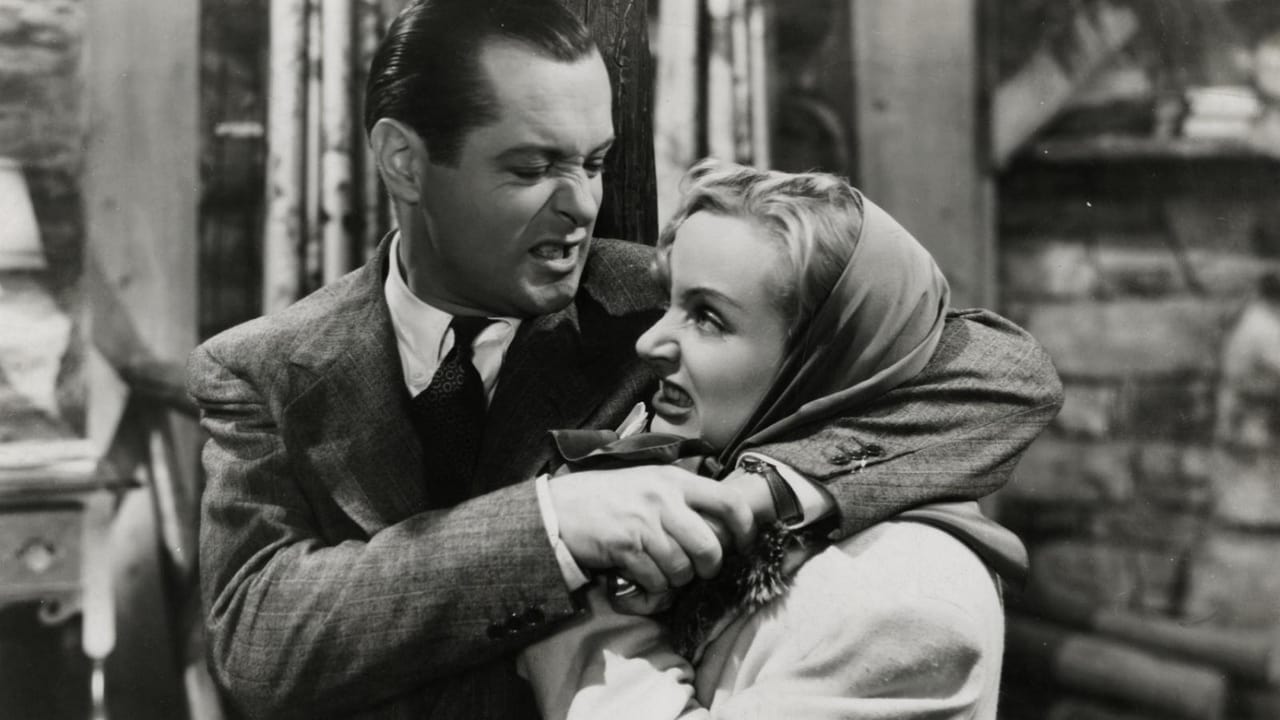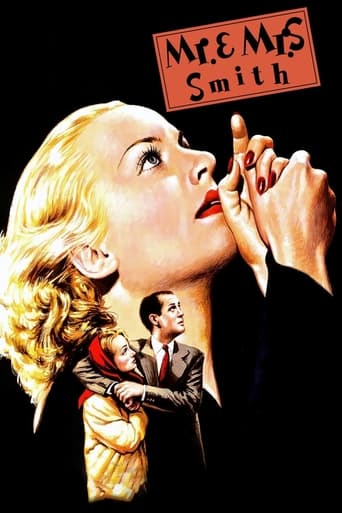

The greatest movie ever made..!
... View MoreStylish but barely mediocre overall
... View MoreDon't listen to the Hype. It's awful
... View MoreBrilliant and touching
... View MoreA married couple (Montgomery & Lombard) suddenly find out they're not legally married, and thanks to hubby's reckless remark, the wife decides not to make it legal. Now hubby has to work at winning her back, despite his best friend and her new independence. Fairly amusing comedy. For me, the storyline was a little too talky, especially several later extended scenes that appear to grant actor Raymond's character more screen time. What's needed, I think, is more spark, the kind provided by Jack Carson's steam room Lothario or the lively nightclub scene that's a real hoot. Otherwise, Lombard shows her comedic skills in a rather difficult role, while Montgomery mugs it up in unMontgomery fashion. However, pity poor Gene Raymond who's stuck with a boring role that appears out of sync for a comedy with the exception of his one well-done drunk scene. Overall, this sophisticated farce is a little too smooth and polished to really impress. And, despite scripter Krasna's many crafty innuendos, likely over-written, as well. Nonetheless, many amusing moments do remain. It's just not front-rank or what we might expect from an all-time great like Hitchcock. Rather, Hitch excelled at amusing moments, but as this effort shows, comedy as a format was not his world-class strength.
... View MoreAlfred Hitchcock directed this comedy(unusual for him) that stars Robert Montgomery and Carole Lombard as David & Ann Smith, who have been happily married for three years until they one day have an argument about their marriage, then(by one of those standard movie coincidences) learn that day that, because of a dispute between local and state jurisdictions, their marriage license is invalid, meaning they are no longer legally married! This causes them to separate for a time, dating other people, until they realize the obvious about each other... Despite the cast and director, this is a contrived and predictable film, and not especially funny, though well made. A trifle.
... View MoreIf you are looking for a silly, high speed, comedy with artificial acting, you're in the wrong place. Try Bringing Up Baby or some of the other over the top screwball comedies of the period.Frankly, I think Hitchcock was wise to avoid some of these excesses. The acting is fairly natural, and the pace relaxed. Yet there are still some laugh out loud funny moments.Why did Hitch make this? Why does a serious actor like Jack Nicholson make a comedy like Going South? It's not that they want to become comedians, but that they need to be able to add a comic touch to serious roles when appropriate.I think Hitch made Mr. and Mrs. Smith for the same reason: to master comic timing and nuance, so he could apply to other films. We see a wide palette of comedy in this movie, from subtle to slapstick. And I think Hitch demonstrated an understanding of how to move an audience to laughter without becoming hammy.The problem is mainly in he script. It is difficult to keep this premise going for 95 minutes. The 1952 Fred Allen movie We're Not Married took 86 minutes to apply the same premise to five couples.This would have been a pleasant enough flick to watch on a Saturday afternoon in the days before DVDs, VHS, or even TV. Studios needed to crank them out, and this would have been a satisfactory product. And remember, Alfred Hitchcock was not the household name in America he was to become.I think people here are being way too hard on Hitch. A good director doesn't want to always be making the same movie, even if audiences do. I think Hitch succeeded in what he set out to do. And then he moved on to make the classy movies he is famous for today.What made the Hitch thrillers distinctive was their precisely nuanced wry humor even in the most dramatic scenes, like Cary Grant driving drunk as a skunk down the hill to Glen Cove in North by Northwest. Hitch's style sparked a whole crime caper genre from other directors that included Charade, Gambit, Mirage and Goldfinger.And it all started with an exercise in comedy called Mr. and Mrs. Smith.
... View MoreWealthy lawyer Robert Montgomery (as David Smith) and beautiful Carole Lombard (as Ann "Annie" Krausheimer) frequently battle, but are nonetheless happily married. Then, due to some mistake concerning county ordinances, they are informed their marriage wasn't legal. Initially, this is taken as a chance to become newlyweds again - but misunderstandings lead to bickering and the couple wonder if they should really be "Mr. & Mrs. Smith". Ms. Lombard dates his law partner Gene Raymond (Jefferson "Jeff" Custer) and Mr. Montgomery jealously follows them to Lake Placid...While not listed as a re-make of anything in particular, this is an old plot. With Lombard and Montgomery co-starring, you would expect much more. Having Alfred Hitchcock direct Montgomery giving himself a nosebleed wasn't exactly good comedy. Betty Compson (as Gertie) has a funny cameo, though, and the "crossed ski" end clicks. Thankfully, Mr. Hitchcock decided to concentrate on suspense thrillers. This was Lombard's penultimate performance; she manages to stay above the material here, and gets another fine film done before leaving this world in a plane crash.***** Mr. & Mrs. Smith (1/31/41) Alfred Hitchcock ~ Carole Lombard, Robert Montgomery, Gene Raymond, Betty Compson
... View More